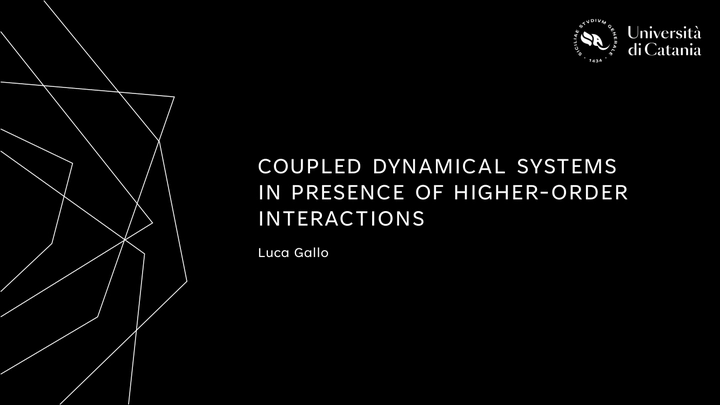
Abstract
In the past decades, many complex systems, either natural, social, or artificial, have been modeled as networks of coupled dynamical systems, with the links describing interactions among couples of units. However, recent evidence shows that various systems are characterized by many-body, group interactions, that cannot be captured by a network description. In the last few years, a vast literature aimed at understanding how these higher-order interactions influence the global behavior of coupled systems has raised. Among other phenomena, the study of synchronization has received a lot of interest. Yet, most of the research focuses on phase oscillators, with the synchronization of nonlinear chaotic oscillators receiving less consideration. Additionally, these studies are restricted to numerical simulations, or provide an analytical solution for simplified cases only. On the other hand, little attention has been given to the investigation of pattern formation in presence of many-body interactions. Particularly, an extension of Turing’s instability theory to the case of higher-order networks is still lacking. The objective of this thesis is to fill the existing gaps in the literature, by developing a general theory for studying the collective behavior of coupled dynamical systems in presence of higher-order interactions. We focus on synchronization of chaotic oscillators and on pattern formation in reaction-diffusion systems. We introduce a new formalism to describe coupled dynamics in a general framework, and we demonstrate that it can be used to describe both phenomena under study, enabling the derivation of the necessary conditions for their onset. The results here presented pave the way to further studies of dynamical systems in presence of many-body interactions.